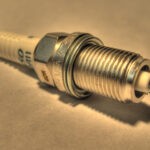How Much to Spend on a First Car? (with Examples)
In Europe and America, people are likely to buy their first car before 21. However, in Asia due to the financial situation, most young people are not able to afford their first car before becoming 25. The excitement and thrill of buying your first car are unlike any other feeling. Many consider it the first threshold of adulthood.
How much should I spend on a first car, this is the thing that often keeps young people confused. In this article, we will try and find the answer to this question. Consider this a buying guide for your first car.
How Much Should You Spend on Your First Car?
There is no definite answer to this question. You must set your own budget according to your priorities. If you are financing your car, then you should not spend more than $5,000. Mind you that $5,000 should cover all the purchase price, taxes, and transfer fee in case of a used car.
If someone else is financing your first car like your parent, then you can experiment and go up to $10,000. This will make your search easier by opening a lot of options. But try to keep the budget as low as possible. Go for the car that would give you the best value for your money.
Also read: 10 Best Mercedes Cars Under $10k (Good Condition)
Why Should You Spend as Little as Possible on Your First Car?
For several reasons, you should spend as little as possible on your first car. You might consider following things before overspending on your first car.
- Consider your first car as a test ride. This car is not going to be there with you for long. So why spend too much on such a thing and get emotionally attached to it.
- You have just got your driving license, probably you need to practice before you can drive an expensive car. Consider your first car as a learning tool.
- If you were planning to spend extra money on your first car, then let me advise that it is better to save it. Later you can invest that in someplace where it would give you a reasonable return.
- It is never about purchasing an expensive car, it is always about its ownership costs. So, you must choose your first car carefully. If you push your limit too much, then you might not succeed at keeping your car up and running.
Spend as Little as Possible, but Don’t Buy the Cheapest Car Available?
We have been saying this all along that spend as little as possible on your first car but do not buy the cheapest car available. It should not be like you go to market with a budget of $6,000 and the cheapest car you could find was $3,000, so you bought it.
If you have got a budget of $6,000 then make good use of that money. Make sure that you get everything you require in your first car. Because if you purchase the cheapest car, then the following problems could come your way:
- High Maintenance
People who are selling their cars for the cheapest price usually want to get rid of them. The main reason behind it is that they require high maintenance. You would not want to trap yourself in such a situation.
- Government Restriction
Buying an old car is not bad in general, but buying a way too old car isn’t good. Vehicle regulatory bodies around the globe don’t allow you to drive cars of a certain age without inspection. These inspections cost a fortune. With the first car, most people are not ready to pay these costs.
- End of Life is Near
Every car has an expected life span. But cheaper cars are usually near the end of their life. Since the cheaper the car, the older it will be. So, avoid a car with an engine that would soon need overhauling or replacement.
- Safety
Very cheap cars are not safe to drive, once they usually don’t have the necessary safety gear like airbags and driver-assist functions. And even if they have these functions, they are not working properly.
Also read: 3 Best Toyotas for a First Car (with Cost Calculation)
What are the Costs of Owning a Car?
Following are the average costs of owning a car for a year:
Maintenance Cost: $450
Maintenance is a subjective matter, the above cost would include the scheduled maintenance and occasional repairs of an average car. But in case a major problem occurs, then you might have to pay a bit extra. Here’s where a cheaper car would benefit you. Since budget cars have lower part prices and labor isn’t costly either.
Fuel Costs: $1,320
Fuel cost would depend upon your driving habits and the mileage of your car. If you have a heavy foot and your car is a gas guzzler, then it’s bad news. However, a normal person who drives 12,000 miles in a year and his car does 35-40 miles in a gallon would have to pay the above cost.
Trending Video: How to Easily Bring Back to Life any Old Car Battery and Save Tons of Money (click to watch)
Insurance Cost: $1,957
Insurance for young people is expensive anywhere in the world. It is due to the higher ratio of accidents among younger drivers. You are bound to be young while buying your first car. So insurance usually costs 20-30% more in comparison to what it costs otherwise.
So, this is what the cost of owning a car would look like at the end of the year:
Total Cost of Ownership: $3,727
What Should You Look for When Buying Your First Car?
Buying a car is never easy but guess what is more difficult, buying your first car. Always take a good look at the market before making your first purchase. Keep the following things in mind before buying your first car:
- Affordability:
Calculate all the ownership costs of the car you are about to buy. The costs of maintenance, insurance, fuel, and taxes. Choose the car with the least ownership cost.
- Safety:
Never compromise on safety. No matter if you have to pay a few hundred extra. Check that safety equipment is intact. Also, check for the safety ratings of the car before buying.
- Reliability:
Always look for the reliability rating of a car before buying it. Check that whether there are any known faults with it. So that when you go to purchase it, you know what to look for.
- Fuel Efficiency:
Your first car should be as fuel-efficient as possible. Don’t trust Google, for that matter. Since older cars have lesser fuel mileage than claimed by the company. Check for yourself before buying it.
- Features:
Look for a car that has lesser features, as cars with a lot of features tend to run into problems as their life progresses. But on the other hand, it should have the necessary features to ensure your comfort.
- High Resale Value:
Your first car should have a reasonable resale value. Because with the purchase of the first car, most people are looking to change after a couple of years. So, if you sell after that period, you should get some amount out of it.
- Transmission:
New drivers find it difficult to operate a manual transmission. If you are one of those, then look for an automatic transmission instead of a manual one.
Also read: Do Hondas Last Longer than Toyotas (Comparison)
What are the Top 5 Cheapest to Maintain First Cars?
Following are the top 5 cheapest to maintain first cars:
- Toyota Yaris
- Honda Fit
- Toyota Corolla
- Honda Civic
- Toyota Camry
Don’t judge us if you see only Japanese brands on this list. Because if there is one thing true universally, then it is that Japanese cars are reliable and have the cheapest maintenance. Toyota and Honda always top the list when survey regarding cheap maintenance is done.
This is why 3 out 5 five options we presented in this list are from Toyota and the remaining 2 are from Honda. Since most owners buy used vehicles as their first cars, it is advised to go with the safest options. Due to the longer life spans of Japanese cars, they tend to be the least problematic of all brands.
There are a number of other reasons why you would want your first car to be from a Japanese brand.
- They are highly reliable
- They have longer life spans
- They have low insurance cost
- They have the best mileage
- They have the least breakdown frequency
- They have the cheapest spare parts
- They have the cheapest labor cost
And the list would go on
The majority of the cars on this list are sedans. Because those buying their first car are more likely to purchase a sedan. The following illustration supports this fact:

Let’s take a brief look at the maintenance cost of these cars and why you should choose these as your first car:
- Toyota Yaris
- Why Choose it:
- Lots of features
- Spacious cabin
- User-friendly systems
- Average Price for Used Car: $2,228 – $5,402
- Annual Maintenance Cost: $329
- Honda Fit
- Why Choose it:
- Enough trunk space
- Spacious backseat
- Easy handling
- No blind spots whatsoever
- Average Price for Used Car: $3,574 – $8,116
- Annual Maintenance Cost: $386
- Toyota Corolla
- Why Choose it:
- Very soothing drive
- Easy to drive and easy to control
- Excellent soundproofing
- Average Price for Used Car: $4,375 – $8,967
- Annual Maintenance Cost: $325
- Honda Civic
- Why Choose it:
- Versatile powertrains
- Very comfortable and soothing drive
- Roomy interior
- Excellent fuel economy
- Average Price for Used Car: $5,912 – $11,336
- Annual Maintenance Cost: $378
- Toyota Camry
- Why Choose it:
- Powerful engine
- Impressive fuel economy
- Feature-rich experience
- Top pick for safety
- Spacious cabin
- Ample head and legroom
- Average Price for Used Car: $5,421 – $11,762
- Annual Maintenance Cost: $350
References:
hedgescompany.com, postandcourier.com, forbes.com, driversed.com, ezlicence.com.au, theaa.com, budgetdirect.com.au, kbb.com, aig.ie, drivingtestsuccess.com, doughroller.net, bettermoneyhabits.bankofamerica.com, johnnyholland.org, carvertical.com, moneygeek.com, leithcars.com, moneyshake.com, directline.com, edmunds.com






